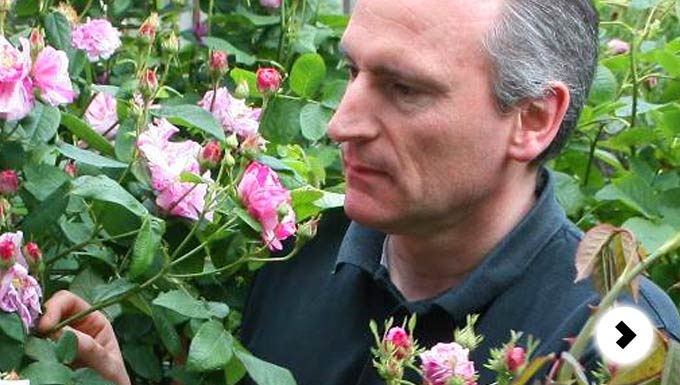HOME › SEXUAL DYSFUNCTION › CIRCULATORY HERBS
Circulatory herbs
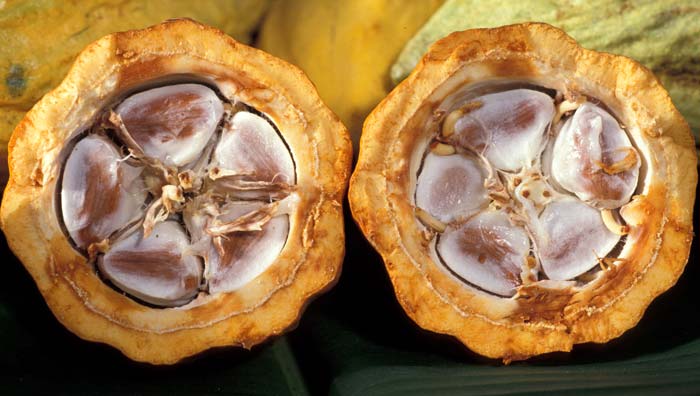
Healthy blood vessels and healthy blood flow are critical to sexual functioning and the good news is that there are many herbs that act positively upon the circulatory system and can aid sexual function as a result. The circulatory herbs may be classified thus:
1. Circulatory stimulants - These are herbs that directly stimulate the flow of blood to the extremities and act rapidly. They have sometimes been used in a Viagra-like fashion in that they are taken shortly before sexual activity in order to get the blood flowing. Examples of these herbs would be:
Chilli (Capsicum minimum)
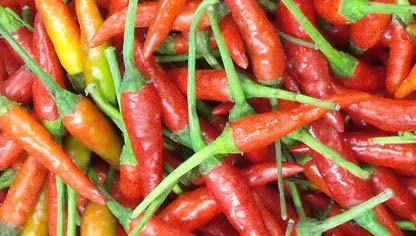
Capsicum minimum
Perhaps the most well known circulatory stimulant. You can see the effect of this herb in the way that it will flush your skin as the blood vessels open up in response to it. This is a truly useful herb but one that does need care in its use. Fortunately, there are many capsules, tablets etc available nowadays that make it user-friendly.
Ginger (Zingiber officinalis)
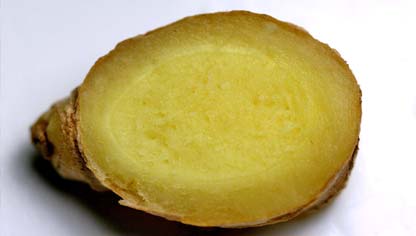
Zingiber officinalis
This herb is probably the most adaptable of the direct circulatory stimulants as it is so familiar to most people. Interestingly, herbalists often use ginger to improve blood flow to internal organs such as the womb.
Other herbs that would fall into this category include cinnamon (Cinnamomum cassia) and prickly ash (Xanthoxylum americanum). Cinnamon may also be helpful in the treatment of diabetes which is a disease that impacts sexual function negatively.
2. Herbs that raise levels of nitric oxide - Nitric oxide is a chemical that acts as a signalling molecule between the cells of the body. One thing that nitric oxide does is to cause blood vessels to open up and thus increase blood flow. The ultimate effect of Viagra is that it supports the effect of nitric oxide released by cells in the blood vessel walls of the penis when an individual is sexually stimulated. The nitric oxide released during sexual stimulation leads to the production of cGMP (cyclic guanosine mono-phosphate). It is this chemical that relaxes blood vessel walls and thus they open up increasing blood flow through them. When sexual activity is ended enzymes called phosphodiesterases break down the cGMP and blood flow normalises. Viagra is a phosphodiesterase inhibitor, it stops the breakdown of the cGMP and thus lengthens and intensifies the increased blood flow to the penis.
There are a lot of herbs and foods that raise nitric oxide levels. Here are a few:
Garlic | Aloe vera | Celery | Horse radish | Asparagus | Oats | Dill | Chilli | Chicory | Coffee | Coriander | Hawthorn | Yams | Ginkgo | Flax seed | Macadamia nut | Rosemary | Chocolate | Fenugreek | Ginger ...and many more.
The amino acid arginine, which can be bought as a nutritional supplement, is also a great source of nitric oxide. See also the section 'Herbs that act on the brain and elevate mood'.
An extremely important herb that can raise nitric oxide levels is:
Gynostemma pentaphyllum (ama cha zuru/xian cao)
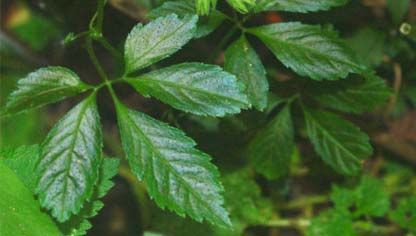
Gynostemma pentaphyllum
A herb which is not really well known at all in the western world. It is used as a daily tea like beverage in Asia and is actually called 'the herb of immortality' (xian cao) in Chinese medicine! This herb has a staggering chemical profile in that it contains the same type of triterpenoid saponins as Panax ginseng (Korean ginseng). The main difference is that Gynostemma has over 3 times as many different types! This makes Gynostemma the best kept adaptogenic secret in the world! However, one of its effects is a blood pressure lowering effect which is related to the fact it increases nitric oxide levels. This herb has a whole range of other beneficial effects and could probably be in every category!
3. Herbs that have phosphodiesterase activity - We saw above how one way to increase nitric oxide levels was through the process of phosphodiesterase inhibition in the way that Viagra does. Some herbs also demonstrate this activity to varying degrees.
Anthocyanin and flavonoid herbs
Anthocyanins and flavonoids are specific compounds found in many herbs and vegetables. The best way to sum this group up would be to simply group together all the red, blue and black berries! That colour they have is due to the anthocyanins. The anthocyanins themselves would be classified under the umbrella of the flavone group of compounds. Anthocyanins have antioxidant activity and are used to strengthen blood vessels. The ones used in herbal medicine are bilberry (Vaccinium myrtilis), Elder berry (Sambucus nigra) and hawthorn (Crataegus oxycanthoides). There are of course many foods you can incorporate into your diet that contain these valuable elements, examples are; all the red, blue and black fruits and berries, red wine chocolate (in its raw state), pomegranates, red cabbage and other red vegetables. Interestingly, the caffeine containing plants tea, coffee, cola nut and guarana also demonstrate some phosphodiesterase inhibitory activity.
Herbs in this category include:
Hawthorn (Crataegus oxycanthoides)
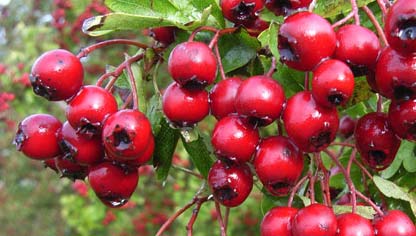
Crataegus oxycanthoides
This is probably the best known herb there is for the treatment of all heart and circulatory conditions. Packed with flavonoids of all kinds Hawthorn is used to relax blood vessels and improve blood flow whilst helping to maintain a normal blood pressure and it is used for helping to heal heart muscle after heart attacks or other heart conditions.
Horny Goat Weed (Epimedium grandiflorum)
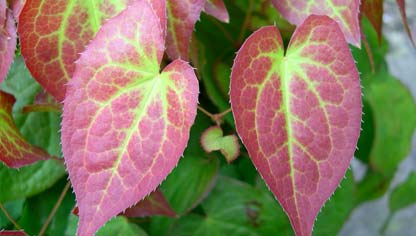
Epimedium grandiflorum
This is a herb we will also encounter in the section entitled 'Herbs that improve constitutional strength and energy'. It's the herb with the name that says it all really! As far as the phosphodiesterase inhibition effect is concerned though, Epimedium contains a chemical called icariin which is a type of flavonoid and this has been shown to have phosphodiesterase inhibitory effects.
Ginkgo (Ginkgo biloba)
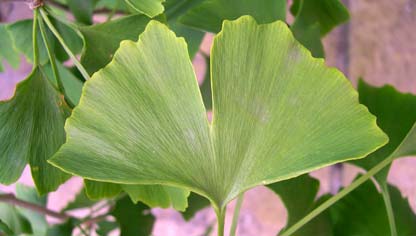
Ginkgo biloba
Another herb that has become commercially successful, specifically for the fact that it improves blood vessel health and promotes blood flow, particularly to the extremities. It is another herb loaded with flavonoids. One of the specific actions of Ginkgo is to increase blood flow to the brain with a consequent anti-depressant effect and this may be a great secondary action in the treatment of sexual dysfunction.
Coleus forskohlii
This is an extremely interesting herb from the Ayurvedic system of medicine as it contains a chemical called forskolin that activates a substance in the cells of our bodies called adenylate cyclase. This substance acts a signalling component in a multitude of basic cellular functions. In summary, forskolin leads to increased production of cAMP, reduced blood clotting, lowered blood pressure and stimulation of hormone production by the cells of the ovaries, testicles and adrenals. All these effect lend themselves to the treatment of sexual dysfunction.
4. Herbs that strengthen the veins - The most obvious way to describe the function of healthy veins in sexual function is during penile erection. Blood floods into the penis by way of the arteries and then has to be held there. If the veins, blood vessels that take blood away from areas of the body, are leaky or weak then blood can escape from the penis too rapidly. Fortunately, we have some powerful vein strengthening herbs at our disposal and these herbs are useful for other things that may help sexual function too.
Vein strengthening herbs include:
Horse chestnut (Aesculus hippocastanum)
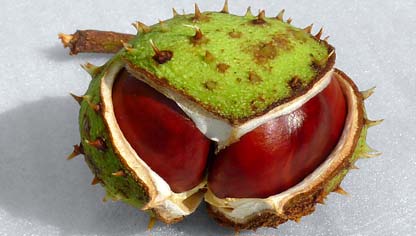
Aesculus hippocastanum
One of the biggest selling 'over the counter' herbals of the modern era as it is useful in the treatment of varicose veins. Once again this herb contains a mixture of saponins with structures very similar to the steroidal and triterpenoid saponins we have already spoken about. The extract of these saponins is usually called aescin. These saponins basically help to reduce leaking from veins by toning up the walls of the veins and by increasing the integrity of the valves found in the veins. This is a particularly useful herb in diabetics with blood vessel complications as in this condition the blood vessels become leaky and weak. Diabetes is also a major cause of erectile dysfunction of course.
Gotu Kola (Hydrocotle asiatica)
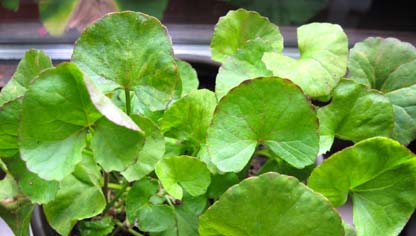
Hydrocotle asiatica
One of the major tonic herbs from Ayurveda. Once again, the active components are triterpenoid saponins and they have been shown to stimulate the production of collagen. This activity is particularly useful if you need to heal wounds or repair tissue after disease etc. However, collagen is of primary importance in maintaining the strength and elasticity of blood vessels, and is therefore particularly useful in strengthening weak or incompetent veins. This herb is also used as a mild anti-depressant and mood enhancer, and may also be useful in this respect with regard to sexual function. It is also worth pointing out that during the menopause there may be general tissue thinning affecting the skin, vaginal membranes and bones etc. Enhancing collagen production in this situation may be good, not just for the useful tissue strengthening effect, but by helping to maintain tissue strength and elasticity may also be useful in terms of enhancing body image.
5. Herbs that reduce blood pressure and cholesterol levels - I add this section on the end just to drive home the message of how important these two factors are in maintenance of sexual function, particularly in terms of penile erection. We have covered a lot of the best herbs used to treat these problems above. For example, to treat high blood pressure, hawthorn is one of the best, along with all the anthocyanin containing berries. They also help to maintain normal cholesterol levels. A couple of other very important dietary items that help to normalise blood pressure and cholesterol are garlic and beetroot. In fact beetroot has become all the rage in medical circles as it has been shown that a glass of raw beetroot juice daily is similar to the effect of medication! It contains nitrates that are converted to nitric oxide in the blood stream and therefore blood vessels are opened up, blood flow increases and blood pressure drops. Make sure to take it raw and to flavour add a small amount of grated raw ginger. Another very interesting cholesterol lowering herb has the fantastic name of Guggulu (Commiphora mukul). This is a herb from the Ayurvedic system of medicine that contains steroidal saponins called guggulsterones. This herb has been used for centuries to not only reduce blood lipids such as cholesterol but to reduce body fat generally and help maintain weight. This general weigh loss effect is due in part to the fact guggulu has been shown to stimulate the thyroid gland. Thyroid dysfunction is one of the primary accompaniments to the menopause and by itself can act to reduce sex-drive.
Herbs that improve constitutional strength and energy
Hemp Seed Oil
'Liquid Engineering for the Human Body'
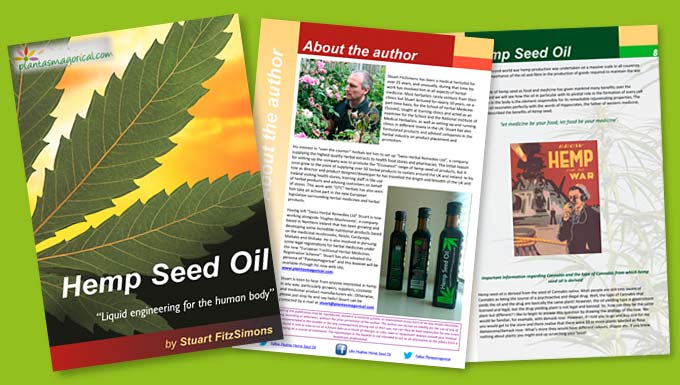
READ ONLINE →
VISIT THE PAGE →
The information is made available with the understanding that the author and publisher are not providing medical, psychological, or nutritional counseling services on this site. The information should not be used in place of a consultation with a competent health care or nutrition professional.


